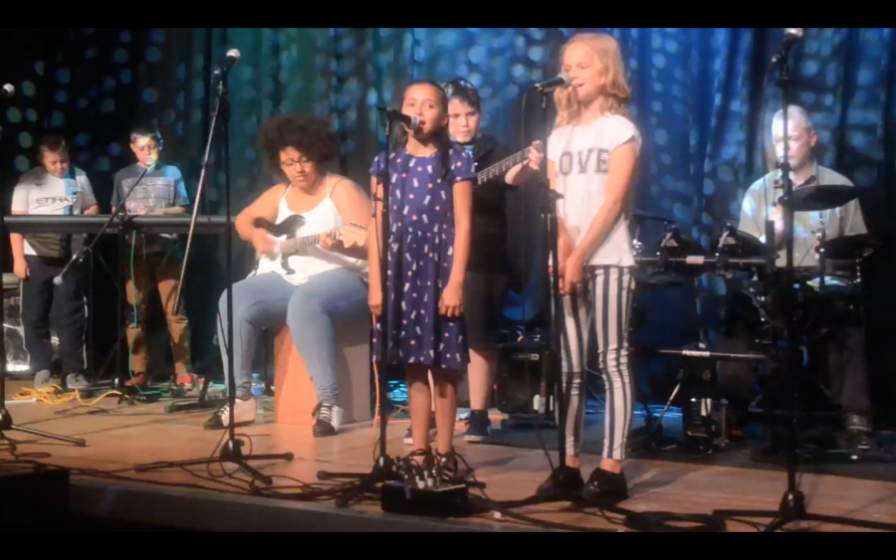Perfect Pairings

How our organisation has developed through music
In 2013 we secured a Youth Music grant from their Open Programme to begin work on certain target estates in Tameside. The original plan for the project was to build on successful work from Manchester’s Brighter Sound in the past and increase the capacity of this work to reach more young people. On Top of the World was a successful model of musical progression for young people in Tameside and we didn’t want to stretch this provision too thinly, but we did want provision to travel to different locations and recruit young people at a grass roots level. With this in mind we worked with local providers, Friends of Duke Street Music and Media (DSMM) to free up extra capacity to deliver more work. There was already a link between the Youth Service run DSMM and On Top of the World, so they understood the aims behind the work but also had young leaders of their own who could benefit from moving into a new challenge.
We hoped to see development not only for local young people, new to music making, who would have the opportunity to take part locally and then progress into more intensive work; but also development for the young trainees, staff and our own youth work practice.
We initially planned to include training for the DSMM staff and young trainees with experienced musicians from Brighter Sound – and early on we decided to open this up to our youth work staff as well, so that they would understand the development and practice of the sessions they were about to work on.
The impact was clear from the first training – trainees and staff all said “Why have we never started a project like this before?” The first 2 hour session was full of ideas sharing and planning and created a sense of excitement for what was about to happen.
The teams of music leaders, trainees and youth workers then set out into three locations and delivered 10 weeks of brand new music making, recruiting into the progression project as they went.
There were numerous challenges in each of these locations – in Dukinfield the building available was inadequate; in Droylsden the music activity ran alongside a youth club in a different part of the building, which created clashes of working practice; and in Broadoak the team had to tackle a great range of individual needs where some needed one-to-one work and others tried to sabotage the activity with bullying.
None of these challenges are unusual to providing community based activity, but we found as an organisation that introducing music activity to our usual youth work brought unexpected benefits.
The teams gradually explored the full range of the skills available to them and learned to rely on each other to tackle each problem.
“We had a strong skillset for each person in the team – we were never stuck for a solution.” Youth worker
“The team worked well together and were able to support each other, especially in conflict situations.” Music leader
And we also found skills in our youth work team that hadn’t been explored fully before.
“I had two people with me who I already knew, and Charlene was a bit of an unknown – but like with ice-breakers and rhythm stuff – it was exactly what we needed… that kind of skillset and then it made us kind of more confident that we could handle any situation…” Music leader.
This open approach led us to recruit different kinds of young people who haven’t been involved in On Top of the World before – younger participants aged 10 and 11 (as long as they were going to be 11 soon!) and young adults with learning disabilities. These groups excelled at the longer term parts of this project, but in the early days of the engagement projects they presented other challenges:
“There was a difficulty in working with disability / complex needs group together with a mainstream group, and the age difference. We promoted inclusion, respect and the importance of working together. We listened to the needs of the young people and celebrated their achievements.”
All this development has led us to plan for future activity in a different way. We will maintain the link with Friends of Duke Street Music & Media, but as their staff and volunteer base has shrunk in the past year, and our capacity (and confidence in our capacity) has gone up, we would look to manage the music leadership and trainees ourselves, using both our own staff and contracting from outside the organisation (for example the same music leaders as last year and the same or new trainees).
We would build an early or mid-season training review into the programme, as workers commented that they were learning about the strengths of their team as they went along.
We would include trips to live events or inspirational venues like BBC Salford or Hospital Radio and we would introduce some overarching themes and perhaps a song that all groups work on and play when they all come together for the first time.
As an organisation we have completed this round of activity feeling like there is great potential for the future, limited only by what we can imagine and support each other to achieve!
